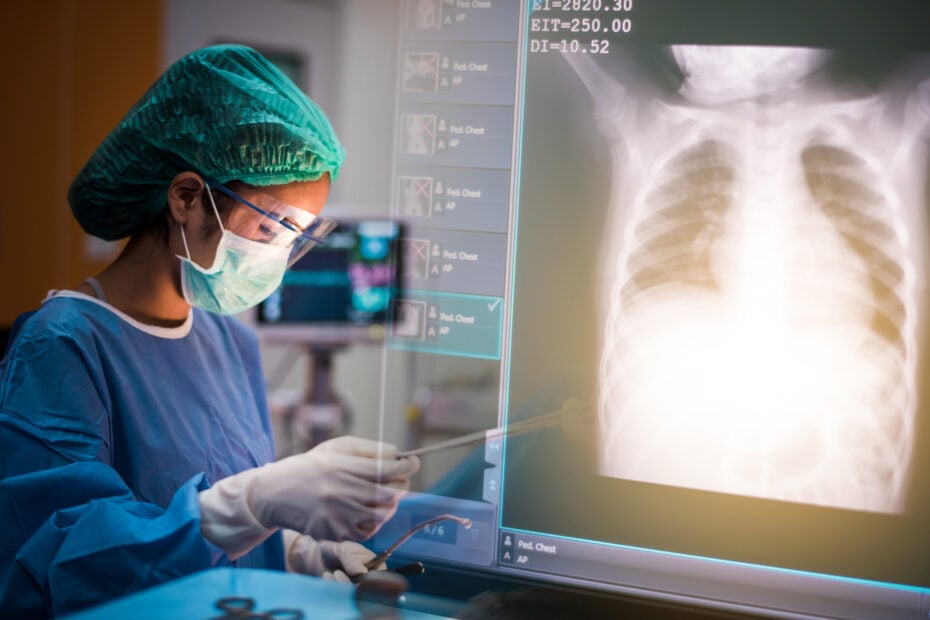Lung cancer is a significant global health concern, particularly among patients with a history of smoking. According to the World Health Organization (WHO), it remains one of the leading causes of cancer-related deaths worldwide, with smoking drastically increasing the risk. Many people travel overseas to find the best lung cancer doctors in the world and to access advanced diagnostic facilities, the latest treatments, or more affordable healthcare.
It’s important to understand the complexities of lung cancer symptoms. Early recognition of potential red flags, such as a persistent cough or shortness of breath, can significantly influence treatment outcomes. In some cases, patients might choose to travel abroad to seek specialized care, access clinical trials, or find affordable care. With careful planning, international medical care can provide significant benefits to those facing complex diseases like lung cancer.
In this article, we will explore the common signs of lung cancer and explore why smokers are at particularly high risk. We’ll also discuss how to find the best hospitals for lung cancer treatment.
Why Smokers Are at Higher Risk
Smoking remains the primary risk factor for lung cancer, contributing to an estimated 80–90% of all cases. When you inhale cigarette smoke, you expose your lung tissue to carcinogenic chemicals that can damage cells and trigger abnormal growth. Over time, these genetic mutations can lead to the development of cancerous tumors.
Key reasons why smokers are more vulnerable include:
- Carcinogens in tobacco smoke: Repeated exposure to harmful substances such as tar, benzene, and formaldehyde directly injures lung cells.
- Inflammation and cell damage: Smoking causes chronic irritation, paving the way for mutations that lead to cancer.
- Dose-dependent effect: The risk rises with both the duration and intensity of smoking. Heavy or long-term smokers are at a much higher risk compared to those who smoke less frequently.
For anyone who has smoked or continues to smoke, being aware of the common lung cancer symptoms can be lifesaving.
Early Symptoms of Lung Cancer
Recognizing the early signs of lung cancer is crucial for successful timely intervention. While symptoms can vary from person to person, especially in the early stages, several early warning signs commonly appear in smokers:
- Persistent Cough: A constant cough that does not resolve within two to three weeks, or a cough that worsens over time, is one of the most common lung cancer symptoms.
- Shortness of Breath: Difficulty breathing or a feeling of tightness in the chest can indicate compromised lung function.
- Chest Pain: Pain in the chest that intensifies when coughing or laughing may be a sign of underlying issues.
- Changes in Phlegm or Sputum: Smokers often experience an increase in sputum production. However, noticing blood or a significant color change could be an alarming indicator.
- Unexplained Weight Loss and Fatigue: Sudden weight loss and persistent fatigue may suggest the body is fighting a serious illness.
If you experience any of these signs of lung cancer, it is essential to seek medical advice. In its early stage—often referred to as stage 1 lung cancer—the disease may not be severe, making regular screening extremely beneficial.
Importance of Early Diagnosis of Lung Cancer
Early diagnosis of lung cancer can dramatically improve treatment outcomes. Patients who managed to identify stage 1 lung cancer symptoms early and opted for specialized treatments often report positive experiences and improved long-term prognoses.
In your visit to a pulmonologist, thoracic surgeon or an oncologist, the prescribed diagnostic exams typically include:
- Imaging Tests: Chest X-rays and CT scans are often the first steps in identifying abnormal growths.
- Sputum Cytology: A non-invasive test where lab specialists examine sputum for cancer cells.
- Biopsy or Tissue Samples: For a confirmed diagnosis, doctors may perform a bronchoscopy or other minimally invasive procedures to analyze tissue samples.
Advanced healthcare facilities worldwide are employing state-of-the-art techniques such as low-dose CT scans to detect lung nodules at the earliest possible stage. Early screening for high-risk individuals such as smokers can lead to prompt and potentially life-saving interventions.
Does Vaping Cause Lung Cancer?
Many international public health organizations, including Public Health England, have acknowledged that e-cigarettes likely contain fewer harmful chemicals than traditional tobacco products. However, the aerosols produced by e-cigarettes can still contain potentially toxic substances (e.g., nicotine, flavorings, and other chemicals).
Since e-cigarettes are relatively new on the market, scientists do not yet have long-term data conclusively showing whether vaping directly causes lung cancer. However, early research and clinical observations have linked vaping to lung irritation and, in some cases, severe lung injury (e.g., EVALI—E-cigarette or Vaping Use-Associated Lung Injury).
Less harmful is not the same as harmless
Public Health England
Request a Second Opinion
How Long Can You Live With Lung Cancer Treatment?
According to Cancer Research UK, how long someone can live with lung cancer largely depends on the stage at diagnosis and the treatments they receive. In England, non-age-standardised figures for people diagnosed between 2016 and 2020 show that nearly 65% of those with stage 1 lung cancer survive for five years or more post-diagnosis. This rate decreases to around 40% for stage 2, about 15% for stage 3, and roughly 5% at stage 4.
This is only a general snapshot and it’s important to note that individual outcomes can vary significantly based on factors such as overall health, treatment approaches (including targeted therapies and immunotherapies), and how early the cancer is detected.
Considering all stages combined, around 45% of people with lung cancer in England survive at least one year, about 20% reach the five-year mark, and around 10% survive for ten years or more. These figures, reported by Cancer Research UK, highlight the importance of early diagnosis and effective treatment planning. Advances treatment options are continually improving survival rates, offering hope to those facing lung cancer by increasing access to comprehensive, personalized care.
Best Hospitals for Lung Cancer Treatment
After confirming a diagnosis of lung cancer, patients have multiple treatment options, including surgery, chemotherapy, radiation therapy, targeted drugs, and immunotherapy. The choice often depends on the stage of the disease, the patient’s overall health, and specific tumor characteristics.
At this point, a consultation with a world class pulmonologist, thoracic surgeon or medical oncologist is highly recommended. All three lung cancer specialists will collectively recommend the most suitable course of treatment plan for you.
Patients often seek care abroad to access the best cancer expertise, but also notably:
- Innovative Cancer Therapies: Some international cancer centers use cutting-edge treatments such as proton radiation therapy or robotic surgery, which may not be readily available in every country.
- Cancer Expertise: Many international hospitals have developed strong oncology programs dedicated to cancer treatment. For instance, The London Clinic in the UK is highly regarded for private cancer treatment, as are leading hospitals in countries like Germany, South Korea and the UAE, who often employ internationally recognized lung cancer specialists.
- Cost-Effective Care: The price of cancer treatments can vary significantly. Many patients discover that seeking cancer care in countries like Turkey, India, or select Southeast Asian destinations can reduce self-pay expenses without compromising quality.
If you or a loved one has noticed lung cancer symptoms, it is crucial to take immediate action. Medical Travel Market can guide you in making informed decisions on treatment abroad—whether you’re looking for the best cancer hospitals in the UAE, the best oncologist sin London, or the best cancer hospitals in Thailand, we are here to help you explore global treatment options.
Our team supports patients worldwide in planning their healthcare journeys abroad. We can help in comparing treatment costs across different destinations and connecting you with with the best cancer centers worldwide. Simply, get in touch for a free consultation.














